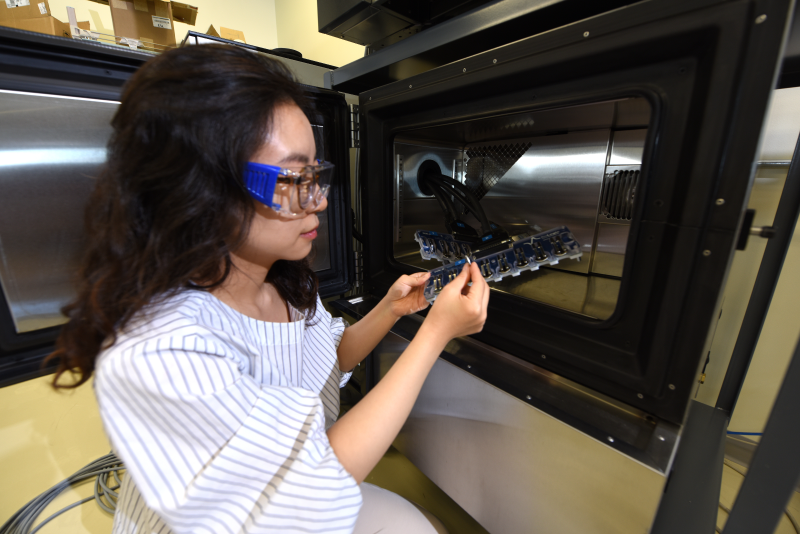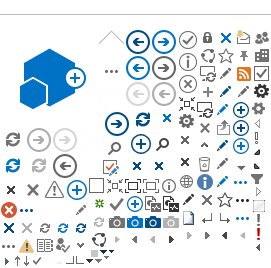Growing up in Northern China, Dr. Ningshengjie Gao and her family would prepare for scheduled area power outages meant to conserve energy. Her mother would cook meals to last the family for the duration, and they'd plan for Gao to visit her grandparents in a nearby, but different region, so she could do her homework with more light than the candles they'd use during the blackout. Those few summer days were not a big ordeal for Gao and her family, but the periods of time without electricity were enough to teach Gao at a young age about energy's importance in her daily life and the world.
Today, Gao is a postdoctoral researcher in the Energy Storage and Advanced Transportation department at Idaho National Laboratory studying energy storage and conversion. Her two current projects work with carbon dioxide reduction and lithium metal batteries.
Gao's parents had science backgrounds. Her father teaches at a medical school, and her mother is a mechanical engineering professor. But Gao's scientific path was far from ordained. She entered Nankai University in China for her undergraduate studies uncertain what career path she might follow – until she entered a chemical lab. It was not the discovery or experiment possibilities that made an impression. It was all the crystal-clear glassware shining in the room. Gao found them pretty. "I've always loved sparkly things," she said.

Gao put an assembled coin cell into a cell holder, which will then be tested later in an environmental chamber to test how the cell reacts in different temperatures, humidity levels, and pressures.
It might have been the glassware that got her in the lab, but it was the science that kept her returning. Her efforts rewarded her with an international award during the 2013 World Engineering Summit held in Singapore. Gao loved conducting experiments. She still does.
"It provides a continuous experience of exploring the world," she said. In the lab, "I am excited to witness new phenomena or processes that have never been seen before. I am doing things I cannot do in my daily life."
In her daily life she does yoga, she hikes, and she investigates objects, like flowers, by quietly sketching them. In the lab, she is working to better understand energy, how to convert it, how to store it, how to use it safely and minimize its impact, and how to get more of it directly into everyone's hands in the form of electronic devices with batteries that last longer.
Gao graduated with a bachelor's degree in 2013, and a few months later she entered a doctorate program at Oregon State University, where she focused on electrochemistry for energy applications. Specifically, she worked on technology to recover electrical energy and fuels from organic wastes. In the back of her mind, she remembered those days as a child without electricity at home in China.
"In general, energy is critical across the world," she said.
Gao finished her doctorate program last year, but her research at Idaho National Laboratory still investigates energy storage and conversion. One of her projects involves electrochemical carbon dioxide reduction. It is a project she started on two years ago as an intern at INL and involves using renewable energy to reduce the carbon footprint. She's currently working on how to convert renewable energy into a more dispatchable form to easily integrate into the electrical grid for long-term storage and transport. She recently helped draft a paper about this work that has been submitted for review for publication.
Her other area of research focuses on lithium metal batteries. Lithium metal batteries have a higher theoretical capacity than lithium ion batteries, she said. But there are still issues with making it largely applicable to daily life.
In the lab, Gao assembles batteries and then tests them. She runs them until they die in various conditions and collects the data. She is looking at battery failure mechanisms – why the battery cell dies. She looks at battery failure mechanisms to predict the lifespan of lithium metal batteries. Understanding how to make batteries last longer could have implications for anyone with a cellphone or any other portable electronic device. Lithium batteries are also used more and more in electric vehicles, which are becoming a global transportation trend, she said.
She still has a long way to go before she reaches her end goal, but when she's successful, it will impact the lives of everyone whose cellphone battery always seems to die.
"I want our electronic devices to last longer and charge faster," she said.


